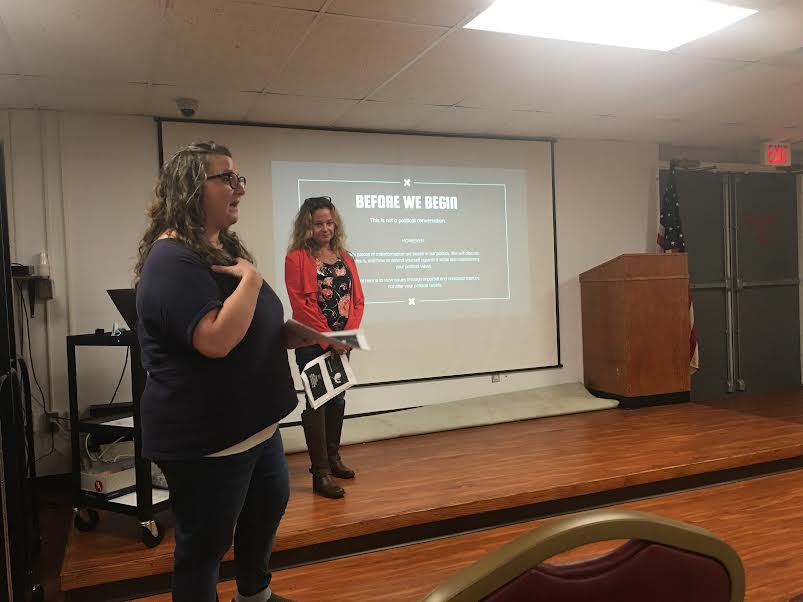Don’t get reeled in by fake news, speakers tell audience
So-called fake news can have a real purpose: To sow discord and weaken democracy, two Bristol Community College researchers said Wednesday, Oct. 13 during a presentation at Southworth Library.
Americans are bombarded with misinformation, much of it deliberately placed on social media, Emily Brown and Susan Souza-Mart told audience members. In their talk, they urged the public to digest information carefully before accepting it as accurate.
During the 2016 election, 248 million Americans were exposed to fake news, they said during their presentation.
The reason, they said, was power and control.
“If I control the information you consume, I can control your attitudes, your beliefs, your behavior,’’ Brown said, in explaining the approach.
Brown is Coordinator of Library Research and Instruction at Bristol Community College's Fall River Campus. Her research interests include misinformation, self-radicalization, and foreign disinformation campaigns.
Souza-Mort is a research and instruction librarian at the college’s New Bedford campus and runs the Open Educational Resources Program, which gives students access to free resources to save on textbook expenses.
The two speak frequently about media literacy and misinformation.
Brown said that countries such as China, Iran, and especially Russia deliberately offer inaccurate material through social media channels to create division.
“Russia’s goal is to undermine Western democracy,” Brown said.
They do this by placing information that does not necessarily back a specific political ideology but instead seeks “to exploit our political divides,” she said.
This effort can happen almost immediately after high-profile incidents, she said, when emotions run high.
One example they cited was the 2018 shooting at Marjory Stoneman Douglas High School in Parkland, Fla. that killed 17 people, making it the worst high school shooting in U.S. history.
As soon as the news of the shooting hit, Russian hackers sent out tweets using fake accounts and identities that were aimed at polarization, Souza-Mart said.
The messages are targeted, she said. Conservatives might see tweets supporting the Second Amendment while a liberal will read about gun control advocacy, she said.
The endgame is not the actual information but the subsequent arguments and divisions.
“People get in these discourses and get into comment wars,’’ Souza-Mart said.
To protect themselves from this misinformation, the speakers encouraged news consumers to take several steps before accepting and sharing information.
Consider the source, cultivate unbiased news sources and be “information literate,” by finding out how produced the information and considering whether there is an agenda involved and whether facts or images were doctored, they said.
They recommended AP and Reuters as reputable sources.
Brown quoted American political theorist Hannah Arendt, who made a statement in 1947 that Brown called “prescient.’’
“If everybody always lies to you, the consequence is not that you believe the lies, but rather that nobody believes anything any longer,’’ the quote reads.
“And with such a people,’’ Arendt wrote, “you can then do what you please.’’















